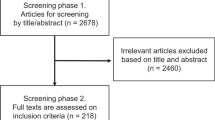Abstract
This work presents a modelling and simulation study of academic hiring policies to address equity, diversity, and inclusion (EDI) in an engineering program. An agent-based modelling approach is used to investigate the comparative impacts of various EDI hiring interventions on outputs including the time associated with achieving target representation of underrepresented groups, average value (‘qualification score’) of new hires, and number of positions that the best qualified overrepresented group applicant applies for before being hired. The simulation results demonstrate that the time constants for cultural change are long even with proposals that may be considered radical. Also, the simulation results do not support a common argument that EDI initiatives will sacrifice excellence in faculty hiring.
Access this chapter
Tax calculation will be finalised at checkout
Purchases are for personal use only
Similar content being viewed by others
References
M. Ayre, J. Mills, J. Gill, Yes I do belong’: The women who stay in engineering. Eng. Stud. 5(3), 216–232 (2013)
N.A. Fouad, W.-H. Chang, M. Wan, R. Singh, Women’s reasons for leaving the engineering field. Front. Psychol., 1–11 (2017)
N.A. Fouad, R. Singh, M. Fitzpatrick, J. Liu, Stemming the Tide: Why Women Leave Engineering (University of Wisconsin-Milwaukee, Milwaukee, 2012) Retrieved from http://www.daweg.com/documents/resources/Stemming_the_Tide.pdf
S. Ingram, Assessing the impact of career and family choices in mid-life: Striking the right balance for women engineers in their 40s. Int. J. Eng. Educ. 23(5), 954–959 (2007)
J. Hunt, Why do women leave science and engineering? Indust. Labor Relat. Rev. 69(1), 199–226 (2016)
Institution of Mechanical Engineers, Stay or Go: The Experience of Female Engineers in Early Career (Institution of Mechanical Engineers, 2017)., available https://www.imeche.org/policy-and-press/reports/detail/stay-or-go.-the-experience-of-female-engineers-in-early-career
Engineers Canada, 2018 National Membership Information (Engineers Canada, Ottawa, 2018)
Engineers Geoscientists Manitoba, Annual Report 2016–2017 (Engineers Geoscientists Manitoba, Winnipeg, 2017)
S.A. Hewlett, M. Marshall, L. Sherbin, How diversity can drive innovation. Harvard Bus Rev (2013) available https://hbr.org/2013/12/how-diversity-can-drive-innovation
McKinsey & Company, 2018, Delivering through Diversity., available https://www.mckinsey.com/business-functions/organization/our-insights/delivering-through-diversity?cid=other-eml-nsl-mip-mck-oth-1802
World Economic Forum, 2019, The Business Case for Diversity in the Workplace is Now Overwhelming., available https://www.weforum.org/agenda/2019/04/business-case-for-diversity-in-the-workplace/
L. Smith Doerr, S. Alegria, T. Sacco, How diversity matters in the US science and engineering workforce: A critical review considering integration of teams, fields, and organizational contexts. Engag. Sci. Technol. Soc., 139–153 (2017)
A.W. Woolley, C.F. Chabris, A. Pentland, N. Hashmi, T.W. Malone, Evidence for a collective intelligence factor in the performance of human groups. Science 330, 686–688 (2010)
C.C. Perez, Invisible Women: Exposing Data Bias in a World Designed for Men (Random House, 2019)
E. Bonabeau, Agent-based modeling: Methods and techniques for simulating human systems. Proc. Natl. Acad. Sci. U. S. A. 99(Suppl. 3), 7280–7287 (2002)
U. Wilensky, W. Rand, An Introduction to Agent-Based Modeling: Modeling Natural, Social, and Engineered Complex Systems with NetLogo (MIT Press, 2015)
W. Rand, R.T. Rust, Agent-based modeling in marketing: Guidelines for rigor. Int. J. Res. Mark. 28(3), 181–193 (2011)
Author information
Authors and Affiliations
Corresponding author
Editor information
Editors and Affiliations
Rights and permissions
Copyright information
© 2021 Springer Nature Switzerland AG
About this paper
Cite this paper
Friesen, M.R., McLeod, R.D. (2021). Towards Equitable Hiring Practices for Engineering Education Institutions: An Individual-Based Simulation Model. In: Arabnia, H.R., Deligiannidis, L., Tinetti, F.G., Tran, QN. (eds) Advances in Software Engineering, Education, and e-Learning. Transactions on Computational Science and Computational Intelligence. Springer, Cham. https://doi.org/10.1007/978-3-030-70873-3_18
Download citation
DOI: https://doi.org/10.1007/978-3-030-70873-3_18
Published:
Publisher Name: Springer, Cham
Print ISBN: 978-3-030-70872-6
Online ISBN: 978-3-030-70873-3
eBook Packages: EngineeringEngineering (R0)




